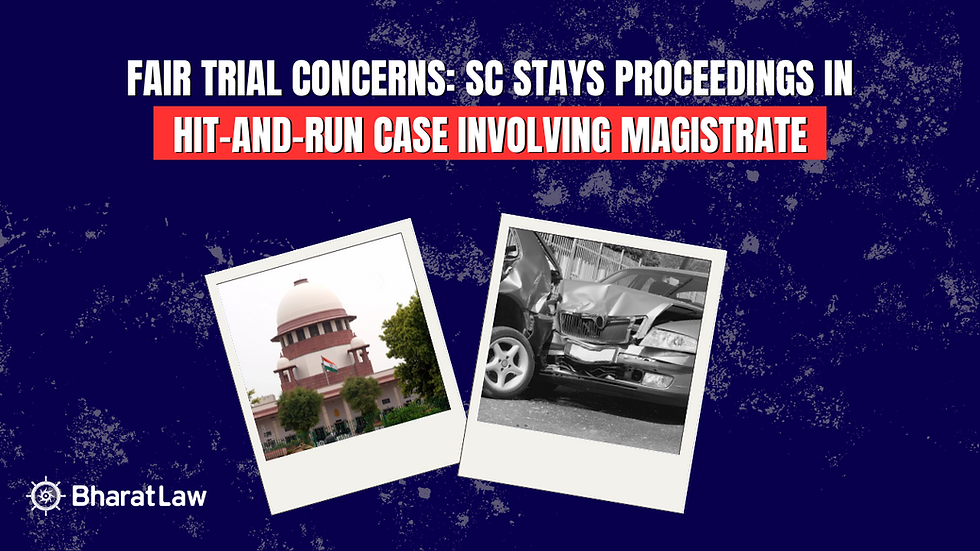Insolvency is Not a Tool for Debt Recovery: Key Takeaways from the GLAS Trust v. Byju Raveendran Judgment
- Chintan Shah

- Oct 24, 2024
- 4 min read
Summary of the Judgment
Case Name: GLAS Trust Company LLC v. Byju Raveendran & Ors.
Date: 2 August 2024
Judges: Hon'ble Dr. Dhananjaya Y Chandrachud, CJI
Advocates: Kapil Sibal, Shyam Divan, Dr. Abhishek Manu Singhvi, Neeraj Kishan Kaul, and Tushar Mehta
Acts and Sections: Insolvency and Bankruptcy Code, 2016 (IBC), Rule 11, Section 9 and 7 of IBC National Company Law Appellate Tribunal Rules, 2016
Cited Judgments: Swiss Ribbons Pvt. Ltd. v. Union of India, Abhishek Singh vs Huhtamaki PPL Limited, Kamal K. Singh v. Dinesh Gupta
Introduction
This judgment deals with critical issues under the Insolvency and Bankruptcy Code (IBC) regarding corporate insolvency and the settlement of claims post-admission of an application. The key question is whether the National Company Law Appellate Tribunal (NCLAT) properly exercised its inherent powers under Rule 11 to approve the settlement between the respondents, which bypassed the creditor GLAS Trust Company LLC’s concerns.
Background and Issues
The third respondent, Think and Learn Pvt Ltd (operating as Byju’s), defaulted under a Credit Agreement, leading to insolvency proceedings initiated by the Board of Control for Cricket in India (BCCI), the second respondent. The National Company Law Tribunal (NCLT) admitted the insolvency application, while the appellant, GLAS Trust Company, challenged the settlement process approved by the NCLAT, raising objections about the origin of the settlement funds.
Key Legal Framework
The NCLAT invoked Rule 11 to approve the settlement between Byju's and BCCI despite the objections from GLAS Trust, arguing that the money paid by Byju's director, Riju Raveendran, came from legitimate sources unrelated to disputed funds in the U.S. courts. This raised issues under Section 12A of IBC, which prescribes strict conditions for withdrawal of corporate insolvency proceedings after admission. Normally, a settlement post-admission requires approval from the Committee of Creditors (CoC) under Section 12A. However, in this case, the CoC had not yet been constituted.
The Appellant’s Objections
The appellant, GLAS Trust, argued that the settlement favored an operational creditor (BCCI) while ignoring its own financial claim, thereby violating the principle of collective insolvency resolution. Additionally, it raised concerns about the funds being potentially derived from U.S.-based assets, which were subject to legal restrictions due to ongoing Delaware court proceedings. The appellant also emphasized that insolvency law was being misused as a recovery mechanism rather than serving its broader purpose.
Hon'ble Justice Chandrachud noted:
"Insolvency proceedings are not mere tools for debt recovery but aim at the collective resolution of corporate insolvencies, ensuring a fair outcome for all creditors."
NCLAT’s Use of Rule 11
The NCLAT relied on Rule 11 to allow withdrawal despite the absence of the CoC, citing precedents like Swiss Ribbons and Abhishek Singh, where the Court permitted inherent powers to resolve disputes. However, the appellant contended that this circumvented the established process under Section 12A and failed to adequately safeguard the interests of financial creditors.
Delaware Court Proceedings
A parallel aspect was the injunction by the Delaware Court concerning the alleged fraudulent transfer of USD 533 million by Byju’s Alpha Inc., a U.S.-based subsidiary. The Delaware Court’s ruling restricted the use of these funds, and GLAS Trust argued that the settlement could involve prohibited funds. Riju Raveendran, however, provided affidavits confirming that the settlement was funded from personal resources generated in India.
The Court remarked:
"A key concern is whether the settlement was genuinely independent of the contested U.S. funds, or whether it constitutes a veiled circumvention of the Delaware Court's orders."
Key Takeaways
Inherent Powers vs. Statutory Framework: The invocation of inherent powers must be exercised sparingly and should not override statutory provisions.
Equal Treatment of Creditors: Once insolvency proceedings are admitted, all creditors must be treated fairly, and preferential treatment through settlements is not permitted.
Transparency in Settlements: Any settlement involving large financial entities must have transparency regarding the sources of funds used to prevent violations of foreign or domestic court orders.
Final Observations
Hon'ble Justice Chandrachud emphasized the importance of transparency and fairness in insolvency proceedings, stressing that the interests of all creditors, particularly financial ones, should be considered in any settlement. While the Court recognized the evolving nature of the legal framework surrounding settlements under IBC, it stayed the NCLAT's decision and directed that further scrutiny of the funds used in the settlement was essential.
Conclusion
The Supreme Court ruled in favour of the appellant, setting aside the NCLAT’s order that approved the settlement. It held that the NCLAT erred in invoking its inherent powers under Rule 11 to bypass the statutory provisions of the IBC. The settlement between Byju's and BCCI was invalidated, and the Court reinstated the CIRP against the corporate debtor. The judgement stressed the need for adherence to the IBC’s collective process and the equal treatment of creditors.
The judgement provides a clear reaffirmation of the principles of insolvency law under the IBC. It reiterates that the insolvency process is a collective process, designed to protect the interests of all creditors and not just a few. Furthermore, the Court’s emphasis on transparency and the protection of creditor rights sets an important precedent for future insolvency cases in India.



Comments